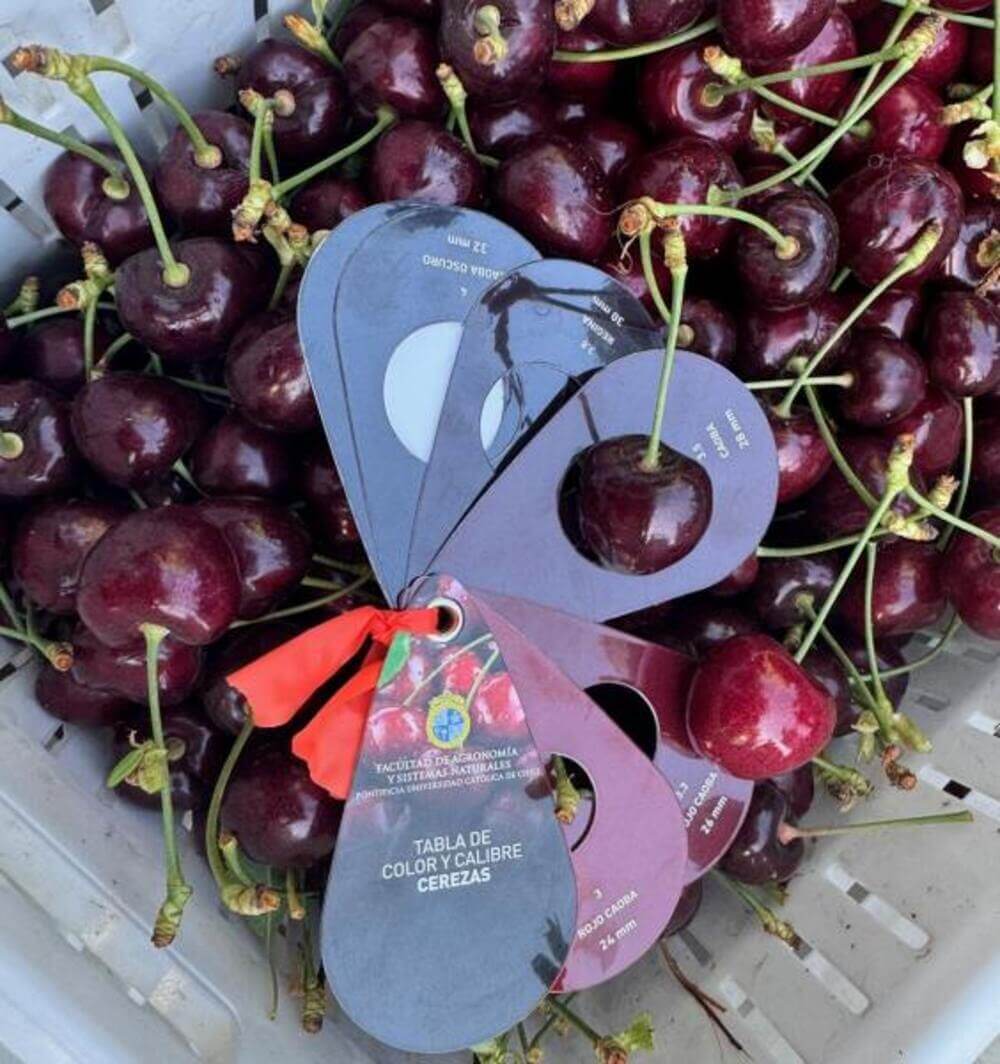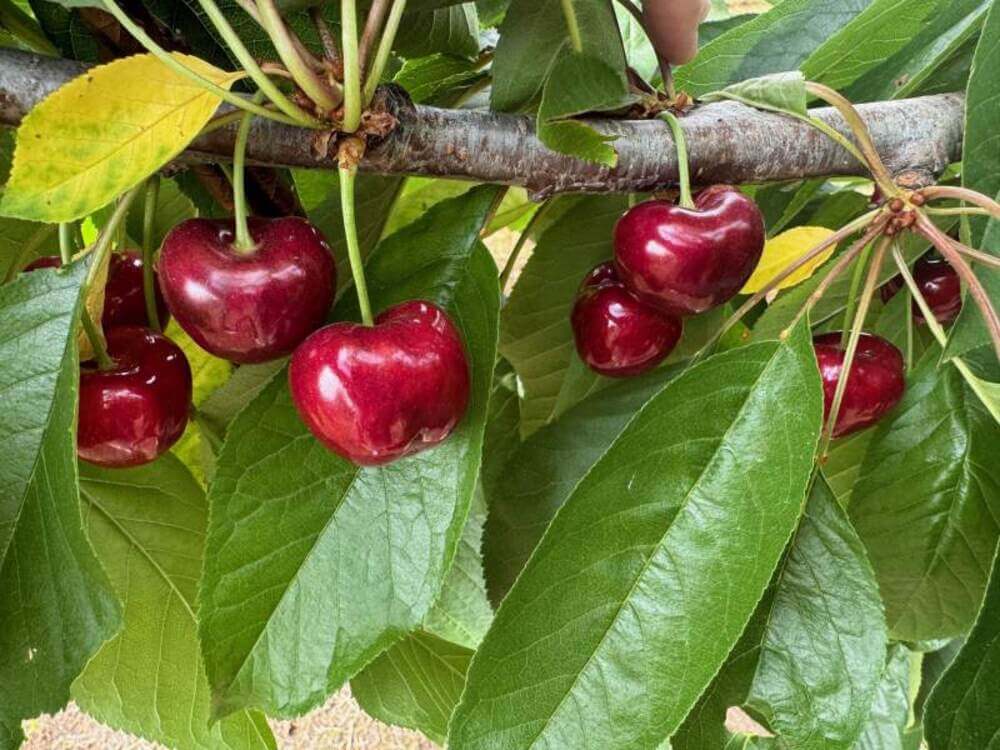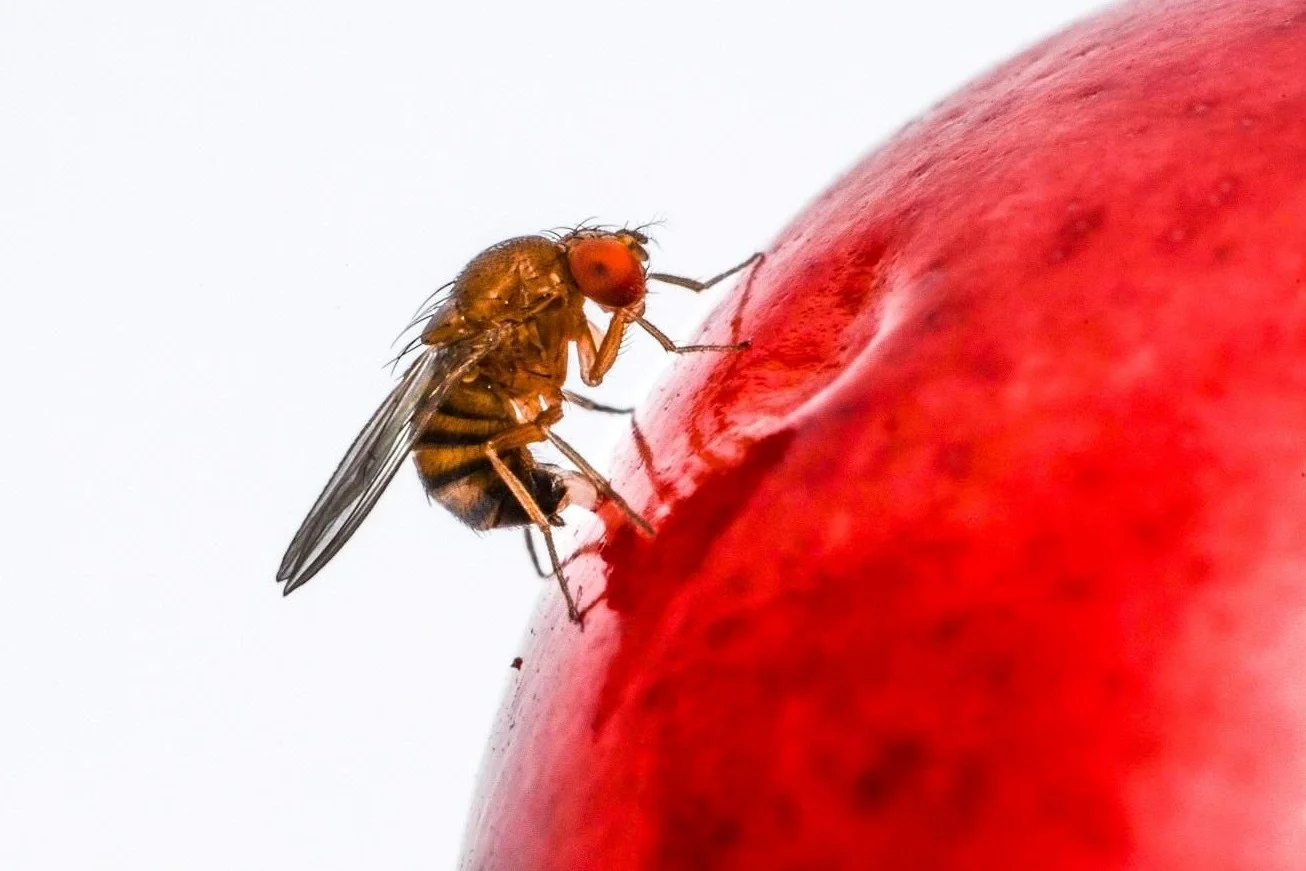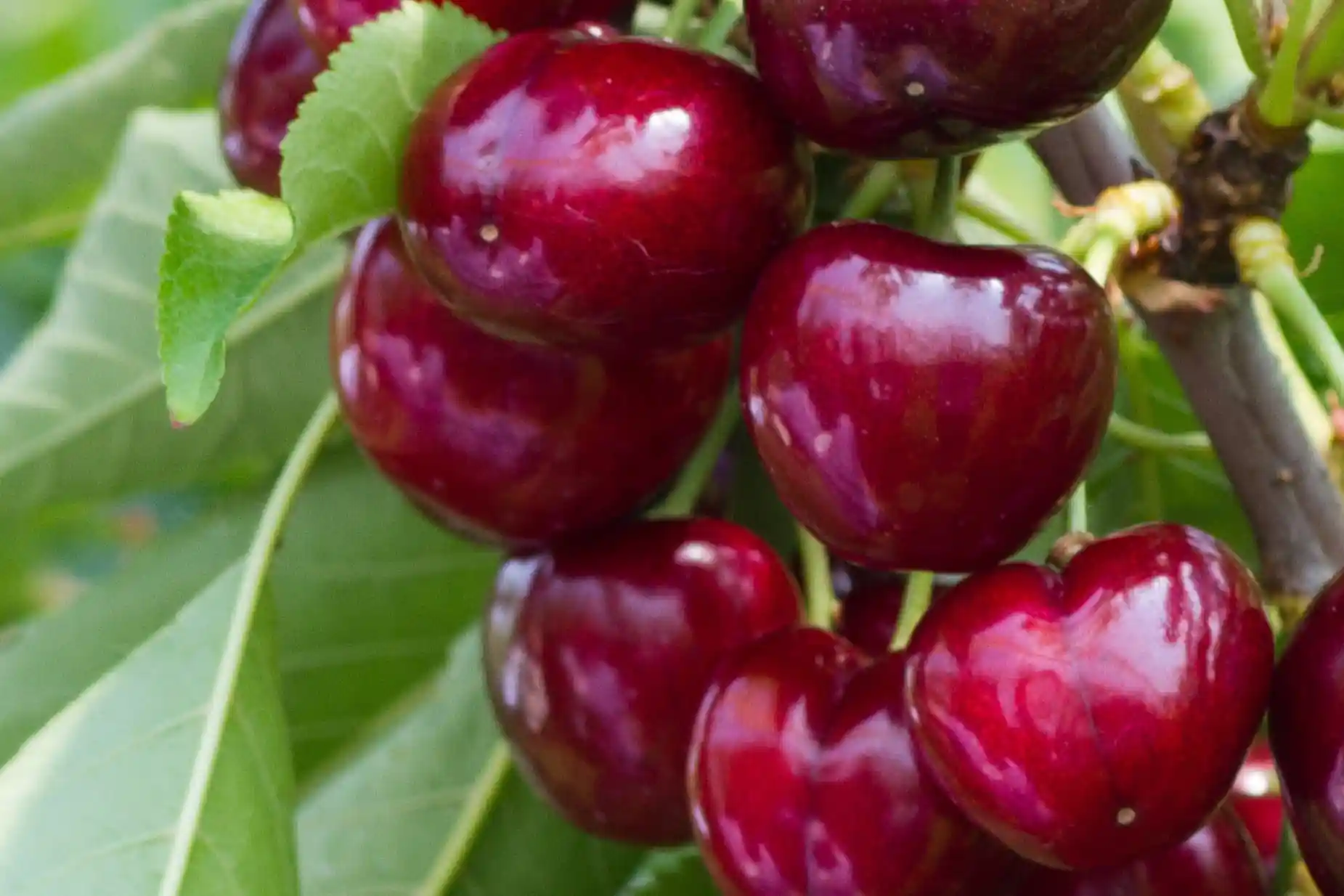Field days organised by ANA Chile® took place on Wednesday 20 and Thursday 21 December 2023, in the Chimbarongo and Rio Claro areas, respectively.
On 20 December in the area of Río Claro, in the region of Maule, a trial of the new varieties Sweet Saretta® and Sweet Stephany® was visited with fruits close to harvest, which showed a size of around 30 mm and soluble solids around 20°brix. These are two self-fertile varieties with large size, texture and exceptional taste quality. In addition, long pedicels of good thickness were observed.
The difference in ripening time between the two varieties is 3-5 days. According to the description made by geneticists at the University of Bologna originally, Sweet Saretta® would have a similar harvest date to Kordia, while Sweet Stephany® would be harvested 3 days earlier than Regina.
 Areko
Areko
However, in Chile, in some warm areas such as El Tambo (Region VI), a slight anticipation of the date was observed, which could be explained by a less demanding cold weather requirement, so that when spring temperatures are optimal to start their development, the plants become active and advance.
The following day (Thursday 21 December), in the Chimbarongo sector, we were able to observe the Areko variety at its optimum harvest time, in a commercial field created in 2020 on Maxma 14, owned by grower Jaime Carvajal.
We were able to observe some bins already harvested with flowering fruit and the absence of incidence of sutures and splits due to rain, a problem also observed in other commercial orchards. In addition, the good fruit set and size of the fruit (9,200 kg/ha), the uniformity of the sprouting and the ripening of the fruit, in a complex year due to low cold accumulation and/or low fruit quality, attracted the attention of those present.
 Sweet Stephany - Gisela 6
Sweet Stephany - Gisela 6
Commercial stage
The Areko variety has been in the commercial stage since 2019, based on an area reservation system, with a royalty per plant and a royalty associated with fruit production. To date, there are more than 300 hectares reserved for planting in Chile, of which about 200 hectares have already been planted.
The varieties Sweet Saretta® PA5UNIBO cv. and Sweet Stephany® PA7UNIBO cv. have not yet been commercialised in Chile, but have been reported to perform well in Italy, where Sweet Saretta® withstood the heavy summer rains. In Chile, technical monitoring of several trials conducted with growers in various production areas will continue during 2019 and 2020.
Upcoming activities
Today, Thursday 28 December, a 'box opening' event of Sweet Aryana® PA1UNIBO cv., Pacific red cv., Areko cv., Sweet Saretta® PA5UNIBO cv. will be held at Viveros Los Olmos, Chimbarongo, at 15:30.
Source: A.N.A. Chile®
Images: A.N.A. Chile®
Cherry Times - All rights reserved












